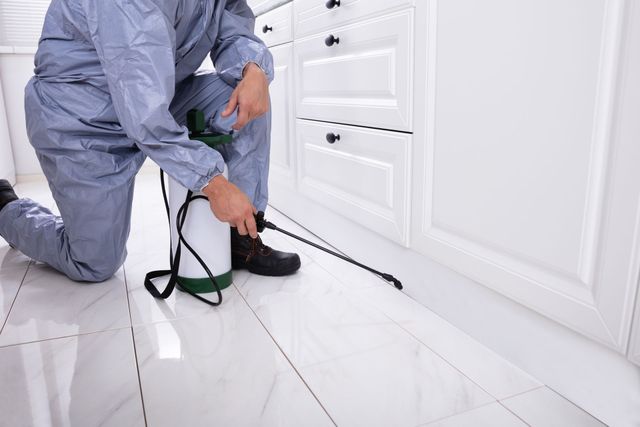Why pest monitoring is essential for luxury hotels is a topic that cannot be overlooked by anyone involved in the hospitality industry. The reputation of a luxury hotel rests not just on its amenities, but significantly on its ability to maintain a clean and safe environment. From the moment guests step into a hotel, they expect nothing less than perfection, and effective pest control is a crucial part of this experience.
Luxury hotels operate in a highly competitive market where guest satisfaction is paramount. A single pest sighting can lead to negative reviews, which can damage the hotel's reputation and affect its bottom line. Therefore, understanding and implementing pest monitoring strategies is vital.

The Risks of Pest Infestation in Luxury Hotels
Pests such as rodents, cockroaches, and bed bugs are not just nuisances; they pose serious health risks to both guests and staff. Pests can carry diseases and cause allergies, making their presence in any hotel unacceptable. This is particularly true for luxury hotels, where guests pay a premium for the highest standards of cleanliness and comfort.
Moreover, pests can cause significant property damage, leading to costly repairs. This includes damage to the structure of the building, furnishings, and even the hotel's brand image. For instance, if pests are found in the kitchen, it can lead to food contamination, which poses a serious health risk and can result in the closure of the hotel's dining facilities.
How Pest Monitoring Works
Pest monitoring in luxury hotels involves regular inspections and the use of specialized equipment to detect and manage pest activity. This proactive approach helps in identifying pest problems before they become severe. By employing a combination of traditional and modern techniques, hotels can effectively keep pests at bay.
Some of the methods used in pest monitoring include visual inspections, the use of traps and sensors, and even the deployment of smart technology that alerts hotel management to potential infestations. For more insights on how early detection improves hotel safety, you can visit this article.
Benefits of Regular Pest Monitoring
Regular pest monitoring offers numerous benefits to luxury hotels. Firstly, it helps in maintaining a high standard of hygiene, which is essential for guest satisfaction. A clean and pest-free environment ensures that guests have a pleasant stay, leading to positive reviews and repeat business.
Secondly, regular monitoring can help in reducing long-term costs. By detecting pest issues early, hotels can avoid costly repairs and potential lawsuits. Additionally, implementing a robust pest control program can enhance the hotel's reputation as a safe and clean place to stay.
Hotels can also benefit from educating their staff on pest detection. Check out this guide on housekeeping pest detection for more information on training hotel staff to recognize early signs of pest activity.
Implementing an Effective Pest Control Strategy
To effectively manage pests, luxury hotels need to implement a comprehensive pest control strategy. This includes hiring professional pest control services, investing in the latest pest detection technology, and training staff to identify and report pest activity promptly.
Integrated pest management (IPM) is a widely recommended strategy that combines various control methods to manage pest populations effectively. It focuses on long-term prevention and aims to minimize risks to human health and the environment. For a detailed overview of IPM, visit this link.
Conclusion
In conclusion, pest monitoring is not just an option but a necessity for luxury hotels. With the right strategies in place, hotels can protect their reputation, ensure guest satisfaction, and maintain a safe and healthy environment. By investing in regular pest monitoring and control, luxury hotels can continue to provide a top-notch experience that meets and exceeds guest expectations.

FAQ
What pests are commonly found in luxury hotels?
Common pests in luxury hotels include rodents, cockroaches, bed bugs, and ants. These pests can pose health risks and damage property if not managed properly.
How often should pest monitoring be conducted?
Pest monitoring should be conducted regularly, ideally on a monthly basis, to ensure early detection and management of any potential pest issues.
What are the signs of a pest infestation in a hotel?
Signs of a pest infestation include droppings, unusual odors, gnaw marks, and sightings of live or dead pests. Staff should be trained to recognize these signs and report them immediately.
